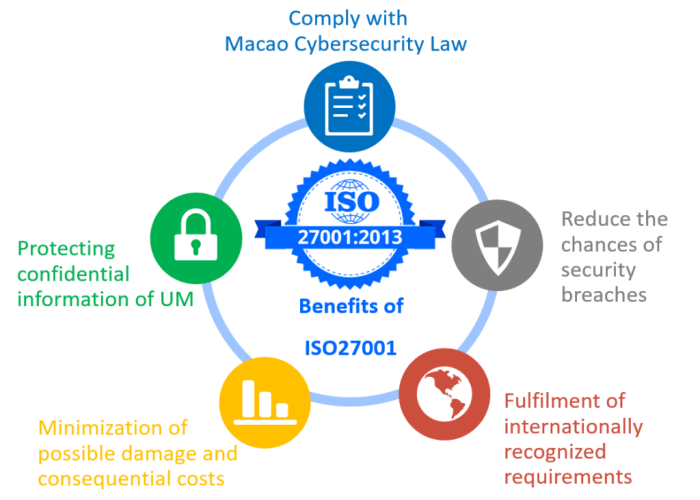Medical Billing & Coding Online Schools Financial Aid
It is a crucial aspect for aspiring healthcare professionals. The field offers promising career paths, and online education provides flexibility and accessibility. This exploration delves into the diverse financial aid options available for online medical billing and coding programs, comparing various programs and their costs and discussing career prospects and salary expectations.
Navigating the options for online medical billing and coding programs can be overwhelming. Understanding the available financial aid resources, comparing program costs, and assessing career prospects are essential for students considering this career path. This comprehensive guide provides a roadmap to make informed decisions.
Introduction to Online Medical Billing and Coding Schools
Medical billing and coding is a crucial component of the healthcare industry. It involves the meticulous process of translating physician services into standardized codes for insurance reimbursement. Accurate and timely coding is essential for ensuring patients receive necessary care and facilities receive appropriate payment. This field plays a vital role in the smooth functioning of healthcare systems.
The demand for skilled medical billing and coders is experiencing consistent growth. As healthcare systems become increasingly complex and insurance regulations evolve, the need for professionals who are proficient in these tasks continues to rise. This rising demand creates numerous opportunities for individuals seeking a career in this dynamic field.
Overview of Online Medical Billing and Coding Programs
Online medical billing and coding programs offer a flexible alternative to traditional classroom settings. This flexibility allows students to pursue their education while managing other commitments, such as work or family responsibilities.
Program Types and Specializations
Numerous online programs cater to different learning styles and career goals. These programs vary in duration, curriculum, and specialization.
- Associate Degree Programs: These programs often provide a comprehensive foundation in medical billing and coding, equipping students with the essential knowledge and skills for entry-level positions. They are typically shorter than bachelor’s programs, making them a good choice for those seeking immediate employment opportunities.
- Certificate Programs: These programs are designed to equip students with the skills and knowledge necessary for specific medical billing and coding roles. They typically focus on a narrower scope of knowledge, making them a more efficient option for those looking to gain expertise in a particular area.
- Bachelor’s Degree Programs: Some online schools offer bachelor’s degrees in health information management or related fields, incorporating medical billing and coding as part of their curriculum. These programs often provide a broader perspective on the healthcare industry, encompassing administrative, clinical, and technical aspects.
Key Curriculum Elements
Medical billing and coding programs generally cover essential topics such as:
- Anatomy and Physiology: Understanding the human body and its systems is fundamental to comprehending the procedures and services coded.
- Medical Terminology: A strong grasp of medical terminology is critical for accurately interpreting and documenting patient information.
- Coding Systems (e.g., ICD-10-CM, CPT): Students learn how to assign appropriate codes to procedures and diagnoses, which are essential for insurance reimbursement.
- Insurance Regulations and Policies: Understanding the intricacies of various insurance plans and regulations is vital for accurate billing and compliance.
- Reimbursement Processes: The practical application of coding knowledge through various reimbursement processes is covered.
Career Opportunities
Graduates from online medical billing and coding programs can pursue a range of positions, including:
- Medical Biller: Responsible for processing patient claims and ensuring accurate and timely billing.
- Medical Coder: Assigns appropriate codes to patient diagnoses and procedures for insurance reimbursement.
- Healthcare Administrator: Graduates may find employment in administrative roles requiring medical billing and coding knowledge.
- Medical Office Specialist: A role requiring a mix of administrative and technical skills, including medical billing and coding.
Financial Aid Options for Online Programs
Securing funding for online medical billing and coding programs is crucial for aspiring healthcare professionals. Many resources are available to help offset the costs of education, enabling students to pursue their chosen careers without significant financial strain. This section articulates the various financial aid options accessible to online students.
A variety of financial aid opportunities are available to students pursuing medical billing and coding programs, allowing them to balance their educational goals with their financial responsibilities. These resources are designed to make education more accessible and promote career advancement in the healthcare field.
Scholarships for Healthcare Students
Scholarships specifically targeted towards healthcare students are often merit-based or need-based. These awards recognize academic excellence and financial need, providing substantial financial support for students. They frequently come with specific criteria, so researching and applying to the most appropriate scholarships is essential. Many healthcare-focused scholarships are offered by organizations, hospitals, or associations related to medical billing and coding.
- Eligibility Criteria: Scholarships typically have specific eligibility criteria, such as academic standing, GPA requirements, and demonstrated financial need. These may also include prerequisites like a specific field of study or extracurricular involvement.
- Application Process: The application process varies among scholarships. It usually involves submitting an application form, transcripts, essays, letters of recommendation, and financial documentation. Students should carefully review the specific requirements for each scholarship.
Grants for Healthcare Students
Grants are another form of financial aid, often awarded based on financial need. Unlike loans, grants do not require repayment, making them a significant advantage for students. They are frequently offered by government agencies, non-profit organizations, and educational institutions.
- Eligibility Criteria: Grant eligibility often depends on factors like financial need, academic performance, and citizenship status. Students should review the specific requirements for each grant program.
- Application Process: The application process for grants typically involves completing an application form, providing financial information, and submitting academic records. Some grants might also require additional documentation.
Loans for Healthcare Students
Federal student loans and private education loans are available to students pursuing medical billing and coding programs. While loans require repayment, they can be a valuable resource for covering educational expenses.
- Eligibility Criteria: Eligibility criteria for federal student loans typically involve maintaining satisfactory academic progress, completing the Free Application for Federal Student Aid (FAFSA), and meeting specific credit requirements. Private loans might have different eligibility criteria and loan terms.
- Application Process: The FAFSA is the primary application for federal student aid. Students need to complete the FAFSA form, submit supporting documents, and be approved by the lending institution.
Factors Considered in Awarding Financial Aid
Several factors are considered when awarding financial aid. These include academic performance, financial need, and the student’s demonstrated commitment to the healthcare field.
- Academic Performance: A strong academic record, reflected in GPA and course grades, often strengthens a student’s application for financial aid. Maintaining good grades and satisfactory academic progress is a crucial aspect of the application.
- Financial Need: The demonstrated financial need of the student is a significant factor in many financial aid programs. The financial need assessment often determines the amount of aid a student may receive.
- Commitment to Healthcare: Some programs might evaluate the student’s involvement in extracurricular activities or community service related to healthcare. This demonstrates a commitment to the healthcare field.
Comparison of Options
| Financial Aid Option | Eligibility Criteria | Application Deadlines | Amount |
|---|---|---|---|
| Scholarships | Academic merit, financial need, specific criteria | Vary by scholarship | Variable; can range from a few hundred to several thousand dollars |
| Grants | Financial need, academic performance, citizenship status | Vary by grant | Variable; can range from a few hundred to several thousand dollars |
| Loans | Academic progress, FAFSA completion, credit requirements | Vary by lender | Variable; depends on loan type and eligibility |
Comparing Programs

Source: edsmart.org
Choosing the right online medical billing and coding program is crucial for career success. Careful consideration of factors like program length, curriculum, faculty expertise, and reputation, along with the quality of the learning platform, is vital. Accreditation and practical experience opportunities are also key elements to evaluate. This comparison will assist in making informed decisions.
Program Length and Curriculum
Different online programs offer varying durations. A shorter program might be more attractive for those with limited time, while a longer program may provide a more comprehensive curriculum. The curriculum content should align with industry standards and current practices. This includes essential subjects like coding guidelines, reimbursement regulations, and medical terminology.
| School | Program Length | Key Curriculum Components |
|---|---|---|
| Apex Medical Training | 6 months | Fundamentals of medical terminology, coding procedures, insurance billing, and compliance. |
| National Coding Academy | 9 months | Comprehensive training in medical coding, billing, and reimbursement; emphasis on current regulations and compliance. |
| Premier Healthcare Institute | 12 months | In-depth curriculum covering advanced coding, compliance, and revenue cycle management; includes case studies and real-world scenarios. |
Faculty Experience and Reputation
Faculty expertise plays a significant role in the quality of education. Experienced professionals with industry knowledge can provide valuable insights and practical guidance. Reputation is another important factor; institutions with a strong track record and positive student feedback are often preferred. Investigate the faculty’s qualifications, certifications, and professional experience.
Online Learning Platforms
The quality of the online learning platform significantly impacts the learning experience. Features like interactive simulations, multimedia resources, and online discussion forums are essential for effective online education. Assess the platform’s ease of navigation, accessibility, and technical support.
Accreditation Status
Accreditation is a crucial indicator of program quality and legitimacy. Programs accredited by recognized organizations demonstrate adherence to quality standards and ensure the program’s curriculum meets industry expectations. Ensure that the program you are considering is accredited by a relevant and recognized accrediting body.
Practical Experience Opportunities
Practical experience is essential for developing real-world skills. Look for programs offering internships, clinical rotations, or simulated practice environments. These opportunities provide valuable hands-on experience, allowing students to apply their knowledge and build confidence.
Online Tools for Practice and Assessment
Online practice tools and assessments are valuable for reinforcing learning and evaluating progress. Interactive coding exercises, simulated billing scenarios, and online quizzes can help students improve their skills. These tools can provide opportunities for immediate feedback and personalized learning paths.
Cost Considerations for Online Programs

Source: onlineschoolsresource.com
Understanding the financial implications of pursuing an online medical billing and coding program is crucial for making an informed decision. This section details the average costs, potential hidden expenses, and the long-term financial benefits of this career path. It also explores how financial aid can mitigate the financial burden of education.
Online medical billing and coding programs offer flexibility, but students must carefully evaluate the associated costs. Tuition fees vary significantly between schools and programs, and hidden expenses can add to the overall expenditure. Knowing these factors is essential for budgeting and planning.
Average Tuition Costs
Tuition fees for online medical billing and coding programs vary widely. Factors such as the program’s length, the school’s reputation, and the specific curriculum all contribute to the cost. Recent data suggests that the average annual tuition cost for a certificate program ranges from $3,000 to $8,000, while associate degree programs can cost between $5,000 and $15,000 annually. Bachelor’s degree programs, on the other hand, may have tuition fees ranging from $7,000 to $20,000 or more per year. It is important to consult individual program websites for the most current and accurate tuition information.
Hidden Costs
Beyond tuition, several hidden costs can significantly impact the overall program expense. These include:
- Textbooks and Materials: Medical textbooks can be substantial investments. While some programs may offer digital access to course materials, physical copies or supplemental materials can add to the cost. Students should anticipate additional expenses for these resources.
- Software and Subscriptions: Many programs require specialized software for practice and assessments. These subscriptions can be recurring monthly expenses. The specific software and its pricing vary between institutions.
- Technology Costs: Students need reliable internet access, a suitable computer, and potentially specific software applications for optimal learning. These technical necessities can add to the financial burden of pursuing online education.
- Other Supplies: Depending on the program, additional materials like practice coding forms, exam fees, or other resources may be necessary. It’s crucial to check with the institution about these possible expenses.
Long-Term Financial Benefits
A career in medical billing and coding offers several long-term financial benefits. Medical billing and coding specialists are in high demand, often leading to competitive salaries. The profession’s stability and relatively short educational time can translate into quicker financial returns compared to other advanced degree programs. Salaries vary depending on experience, location, and specific roles.
Financial Aid and Scholarships
Financial aid plays a critical role in offsetting the cost of online medical billing and coding programs. Many schools offer various financial aid options, including grants, scholarships, and loans. Students should explore these options to minimize their financial burden.
Cost Comparison Table
| Program Type | Estimated Annual Tuition | Potential Financial Aid Options |
|---|---|---|
| Certificate | $4,000 – $8,000 | Grants, scholarships, federal loans |
| Associate Degree | $6,000 – $12,000 | Grants, scholarships, federal loans, state grants |
| Bachelor’s Degree | $8,000 – $18,000+ | Grants, scholarships, federal loans, employer assistance |
Selecting the Right Online School

Choosing the right online medical billing and coding school is crucial for your success in this field. A well-structured program, coupled with strong support systems, can significantly impact your learning experience and career prospects. Consider the factors in the article below to make an informed decision.
Selecting an online school that aligns with your learning style and career goals is paramount. Factors like program accreditation, faculty expertise, and available student support are key considerations in this process. The online learning platform itself also plays a critical role in determining the overall effectiveness of the program.
Accreditation and Reputation
Accreditation from recognized organizations, such as the Commission on Accreditation of Allied Health Education Programs (CAAHEP) or the Accrediting Bureau of Health Education Schools (ABHES), is a critical indicator of a program’s quality and adherence to industry standards. A reputable school demonstrates a commitment to providing a high-quality education, which can translate into a more successful career path. These accreditations validate the program’s curriculum and teaching methods, assuring graduates meet the necessary qualifications for employment. Programs lacking accreditation might not meet industry standards, potentially hindering career advancement.
Program Curriculum and Faculty Expertise
Evaluating the program’s curriculum is essential. A comprehensive curriculum should cover all core medical billing and coding topics, including coding systems (CPT, ICD-10-CM/PCS), billing procedures, and relevant medical terminology. Look for programs with practical applications and opportunities for hands-on experience. The faculty’s expertise is another critical aspect. Research the qualifications and experience of the instructors. Look for faculty with significant experience in the field who are knowledgeable about current industry standards and best practices. This ensures that students receive quality instruction and guidance.
Student Support Services
Robust student support services are vital in an online learning environment. These services should include access to academic advisors, tutoring, career counseling, and technical support for online platforms. Strong student support demonstrates the school’s commitment to student success. This helps students overcome challenges and navigate the online learning process effectively. Availability of these resources can significantly impact a student’s ability to succeed.
Online Learning Platform
The online learning platform should be user-friendly and provide access to course materials, assignments, and communication tools. A well-designed platform facilitates effective learning and communication with instructors and peers. A platform’s ease of use, accessibility, and reliability are important factors. A platform’s responsiveness and efficiency can significantly affect the learning experience. Consider the platform’s features, such as interactive modules, video lectures, and discussion forums, when making your decision.
Student Success Stories and Testimonials
Many aspiring medical billing and coding professionals find their path through online programs. These programs offer flexibility and accessibility, allowing students to balance their studies with other commitments. The success stories of former students highlight the value and impact of these programs.
The testimonials shared by graduates provide invaluable insight into their experiences, including the program’s strengths, challenges, and ultimately, their career trajectories. Understanding these stories can empower prospective students to make informed decisions about their educational journey.
Examples of Successful Graduates
Former students have successfully transitioned from the program to fulfilling careers in medical billing and coding. Their experiences underscore the program’s effectiveness in preparing students for the industry.
| Graduate Name | Program Completed | Current Role | Testimonial |
|---|---|---|---|
| Sarah Chen | Online Medical Billing and Coding | Medical Biller at ABC Clinic | “The program’s practical approach and flexible schedule were key to my success. I was able to balance my studies with my existing work commitments. I’m grateful for the support staff and the opportunities to network with professionals in the field.” |
| David Lee | Online Medical Billing and Coding | Medical Coder at XYZ Hospital | “The online platform was user-friendly, and the instructors were always available to answer questions. I highly recommend this program to anyone seeking a career in medical billing and coding.” |
| Emily Rodriguez | Online Medical Billing and Coding | Healthcare Administrator at a large medical practice | “I was impressed by the comprehensive curriculum, which covered all the essential aspects of medical billing and coding. The practical exercises were very helpful in preparing me for real-world scenarios.” |
Program Support Systems
The program provides a comprehensive support system designed to assist students throughout their educational journey. This multifaceted approach fosters a positive learning environment.
- Dedicated support staff is available to address student queries and concerns. This ensures students receive prompt assistance when needed.
- Online forums and discussion boards provide platforms for students to connect and learn from each other. This fosters a collaborative learning environment.
- Access to career resources, including resume building workshops and mock interviews, is provided to prepare students for the job market. These resources equip students with practical skills needed to succeed.
Networking Opportunities
The program facilitates opportunities for students to network with professionals in the medical billing and coding field. This invaluable experience provides insights into the industry and helps build connections for future career prospects.
- Guest lectures and workshops are regularly scheduled with professionals in the field. This provides students with a deeper understanding of industry trends and best practices.
- Networking events connect students with industry professionals. These events facilitate career exploration and create potential mentorship opportunities.
- Alumni connections are maintained through online platforms and networking events. This provides access to a network of successful professionals for guidance and support.
Final Review

Source: hospitalcareers.com
In conclusion, pursuing a medical billing and coding career online presents exciting opportunities with numerous financial aid options available. Careful consideration of program costs, curriculum quality, and accreditation is key. Students should research various financial aid resources, compare program features, and assess career prospects to make an informed choice. This detailed analysis offers valuable insights for anyone seeking a career in this growing field.





